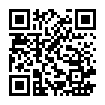Смысл старости в контексте постсовременного общества
Научная статья
Аннотация
Литература
Арьес Ф. Ребенок и семейная жизнь при старом порядке. Екатеринбург: Изд-во Уральского университета, 1999. 416 с.
Бауман З. Текучая современность. СПб.: Питер, 2008. 240 с.
Верещагина А. В., Ковалев В. В., Самыгин С. И. Насилие над пожилыми людьми в семье как социальная проблема // Гуманитарные, социально-экономические и общественные науки. 2017. № 1. С. 23–27.
Верещагина А. В., Кротов Д. В., Самыгин С. И. Трансформация семейно-брачных ценностей молодежи на Юге России: архаизация, традиционализация, модернизация? // Гуманитарные, социально-экономические и общественные науки. 2020. № 2. С. 31–35.
Верещагина А. В., Рачипа А. В., Самыгин С. И., Щербакова Л. И. Молодая семья в России в условиях демографического кризиса. М., 2021.
Власова В. Н. Региональное социокультурное пространство дополнительного профессионально-педагогического образования : автореф. дис. …. д-ра филос. наук. Ростов н/Д.: ЮФУ, 2010.
Гафиатулина Н. Х. Детерминанты формирования этнических стереотипов в среде молодежи Юга России в контексте анализа теорий происхождения этнических стереотипов // Кавказ: вчера, сегодня, завтра : сб. науч. ст. / отв. Ред. И.П. Добаев. Ростов н/Д., 2019. С. 50–58.
Гафиатулина Н. Х., Верещагина А. В., Самыгин С. И. К вопросу об институциональном кризисе молодой семьи: проблемы формирования социального здоровья // Гуманитарные, социально-экономические и общественные науки. 2016. № 10. С. 60–64.
Гафиатулина Н. Х., Воробьев Г. А., Шевченко А. М. Новое одиночество как фактор влияния на социальное самочувствие российского общества в условиях ограничительных мер в период пандемии // Государственное и муниципальное управление. Ученые записки. 2022. № 1. С. 223–228.
Гафиатулина Н. Х., Щербакова Л. И., Самыгин С. И. Социальное здоровье российской молодежи в контексте теории жизненного пути индивида // Гуманитарные, социально-экономические и общественные науки. 2020. № 2. С. 36–41.
Касьянов В. В., Власова В. Н. Пандемия как социальная трагедия для российского населения: обострение системы неравенств // Гуманитарные, социально-экономические и общественные науки. 2021. № 1.
Кляйненберг Э. Жизнь соло: новая социальная реальность. М.: Альпина нон-фикшн, 2014. 279 с.
Kashina Ju.V., Gluzman Iu.V. [et al.] Assessment of the level of anxiety as an indicator of regulatory-adaptive capabilities of students to educational load in higher educational institution // PalArch's Journal of Archaeology of Egypt / Egyptology. 2020. Vol. 17, № 6. P. 743–752.
Kowal P., Peachey K. Indicators for the Minimum Data Set Project on Ageing: A Critical Review in sub-Saharan Africa // World Health Organization (report). 2021. 1st December. P. 9.
Minois G. History of old age: From antiquity to the renaissance. Transl. by S. H. Tenison. Chicago: The University of Chicago Press, 1989. 343 p.
Vlasova V. N., Samygin S. I., Samygin P. S., Bortsov Y. S., Aperyan A. V. Family as a factor of social inequality in the context of the modern social policy // Advances in Intelligent Systems and Computing. 2020. Vol. 1100. P. 554–564.

Поступила: 24.03.2022
Опубликована: 04.08.2022





